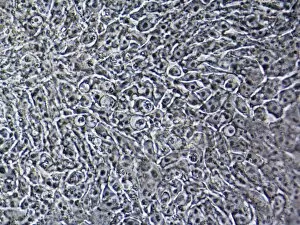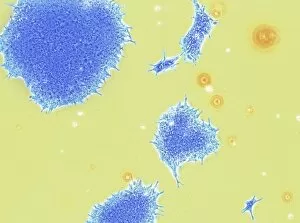Hesc Collection
"Unlocking the Potential of Stem Cells: Exploring the Fascinating World of HESC" Harnessing the power of stem cells
For sale as Licensed Images
Choose your image, Select your licence and Download the media
"Unlocking the Potential of Stem Cells: Exploring the Fascinating World of HESC" Harnessing the power of stem cells, scientists have made groundbreaking advancements in regenerative medicine. Among these remarkable achievements are stem cell-derived nerve cells, which hold immense promise for treating neurological disorders and spinal cord injuries. These specialized cells can potentially restore lost function and improve quality of life. But that's not all – researchers have also successfully developed stem cell-derived retinal cells, offering hope to those affected by degenerative eye diseases like macular degeneration or retinitis pigmentosa. By replacing damaged photoreceptor cells with healthy ones derived from human embryonic stem cells (HESCs), vision restoration becomes a tangible possibility. The potential doesn't stop there; stem cell-derived astrocyte brain cells show great potential in understanding and combating neurodegenerative diseases such as Alzheimer's and Parkinson's. These star-shaped support cells play a crucial role in maintaining brain health, making them an exciting avenue for future research. With each breakthrough comes renewed optimism for patients worldwide. The ability to generate specific types of nerve and retinal cells from HESCs opens doors to personalized therapies tailored to individual needs. This approach holds tremendous potential for revolutionizing healthcare by providing targeted treatments that address the root cause rather than merely managing symptoms. However, it is important to acknowledge the ethical considerations surrounding HESCs' use due to their origin from embryos created through in-vitro fertilization procedures. Striking a balance between scientific progress and moral concerns remains an ongoing debate within society. Nonetheless, as we delve deeper into this fascinating field, it is clear that HESC research has paved new avenues towards understanding complex biological processes while offering hope for millions affected by debilitating conditions.







